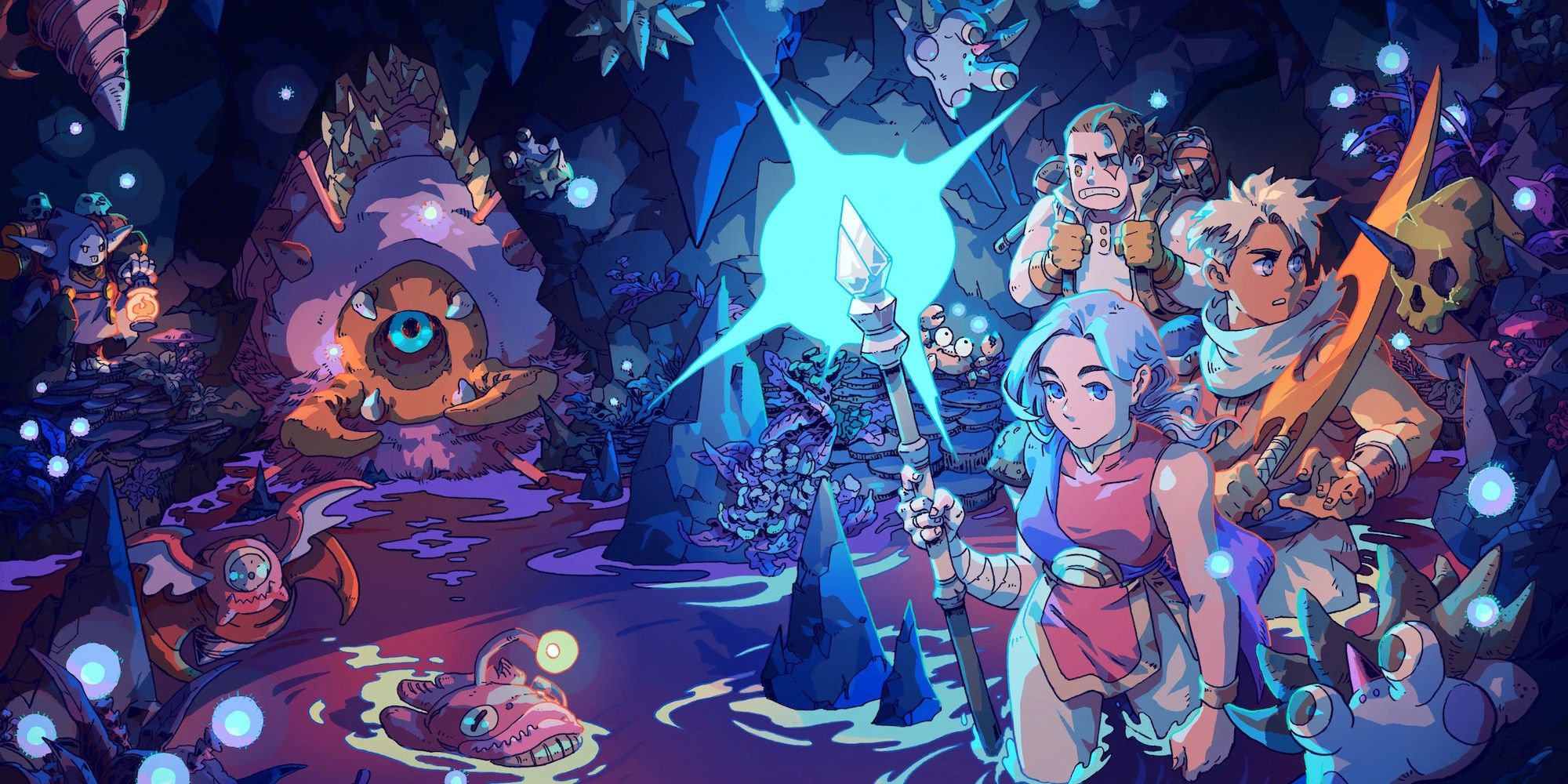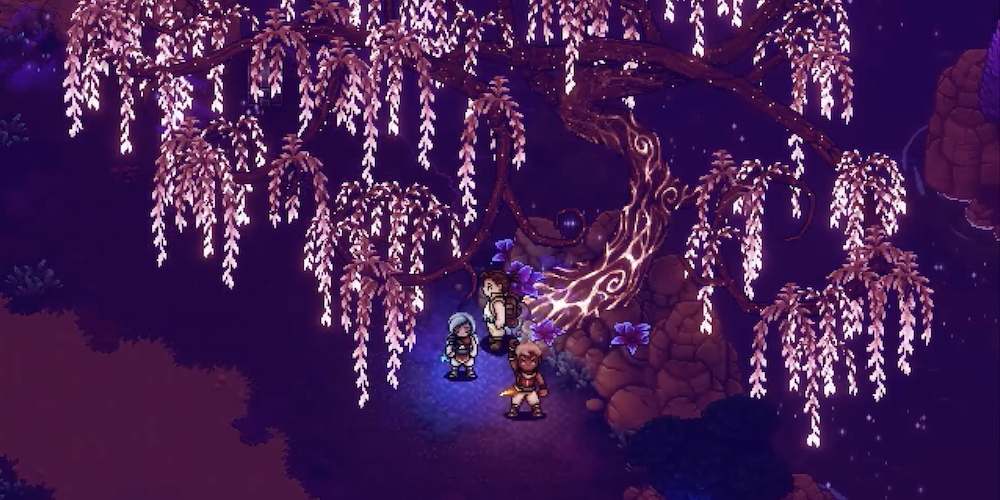Highlights
- The Making of Sea of Stars documentary by The Escapist provides an engaging behind-the-scenes look at Sabotage Studios and their mission to create their upcoming JRPG.
- The documentary showcases the passion and dedication of the Sabotage team, who seek to repurpose childhood video games for future generations.
- The inclusion of renowned composer Yasunori Mitsuda in the project highlights the human tale of believers and non-believers.
Whenever it’s my turn to pick on family movie night, the reaction is usually a chorus of groans and eye rolling. Why? Because some people have no patience for a 10+ hour Lord of the Rings marathon. At least it’s not one of those boring documentaries, right? Well, it all depends on your interests. Non-fiction can be just as engaging as fiction. Personally, I love books about music and music about books, but I especially dig movies about games.
Take the recent The Making of Sea of Stars documentary by equally cool gaming site The Escapist. Inside its totally doable runtime of 33 minutes, I was treated to a behind-the-scenes look at how Quebec-based Sabotage Studios got to where they are now, but it wasn’t a dry PowerPoint presentation about which programming software was used. The doc that I saw was the story of a band of artists, complete with exposition and conflict, all baked in. In other words, the stuff that moves you.
Within the first few minutes of the documentary, Thierry Boulanger, the CEO of Sabotage Studios, explained that the mission of his team was to “take inspiration from retro games and present experiences that are as good as our memories.” Boom. With this point further driven home through a series of cut scenes featuring classics like Battletoads, Contra and Punch-Out!, I was all in.
Boulanger chronicles the origins of Sabotage’s humble beginnings as a side project that was founded on the idea of taking a handful of nostalgic titles, cherry-picking the best parts, and then augmenting them with modern tech. This idea can clearly be seen in Sabotage’s first game The Messenger, which is an almost 1:1 tribute to side-scroller throwbacks like Ninja Gaiden. What I loved about the Sabotage gang was their passion for childhood video games, and their desire to repackage and repurpose them for future generations.
Deeper in the documentary, we’re shown the highs of the dev team, mainly the success of The Messenger leading to the eventual capital to make the RPG Sea of Stars, and then all the way down to the relatable lows brought on by the coronavirus pandemic in 2020. But this band of retro revivalists never seem to get too full of themselves or wallow in self-pity. Indeed, the interviews can’t help but depict the team as a group of positive and talented buddies, right down to their long-haired composer/audio designer, Eric W. Brown.
I liked this guy. Not only did he have an awesome backstory (he played drums for the Goblin-metal band Nekrogoblin), but because the documentary gives video game music a degree of importance that is rarely seen. To a large fan base, (myself included), the recognizable soundtracks of beloved games are almost as equal in importance as the game itself. Sea of Stars is based on a number of classic JRPGs that contained equally classic melodies. So, Sabotage Studio, in their own words, “naively” reached out to famed Chrono Trigger and Xenoblade Chronicles composer Yasunori Mitsuda for his help on not just one track, but an idealistic ten. Guess what happened next? Mitsuda graciously said 'yes' to each of them.
And this, my friends, is the moment that an all-too familiar lump crept up in my throat. We don’t know why Mitsuda agreed and neither do Sabotage, but it tugged on the ol’ heartstrings. Sure, the purpose of a documentary is to inform, but at the end of the day, it’s a human tale oscillating between wins and losses, success and failure, and in this case, believers and non-believers. Without a documentary to capture the finite details of Sea of Stars' development, I’d have never known that Yasunori Mitsuda invested his faith and talents into the project, or that Devolver studios backed The Messenger wholeheartedly.
Truth be told, I hadn’t really paid much attention to Sea of Stars or Sabotage Studios before I took a chance on the documentary. What really sold me was the cover—which, admittedly, is a technique that also influences about 85% of my book, music and movie decisions. I went into the entire thing cold and somehow (apologies) came out warm and gooey.
If you’ve got 30 odd minutes to kill on a lunch-break, weeknight, or elongated work commute, give it a shot. It's the perfect way to warm yourself up for the game's multiplatform release on August 29.


